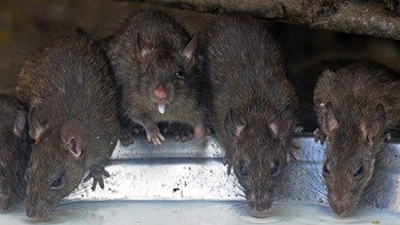Poisons used to control rat infestations in Cape Town are having a ripple effect and negative impact on peri-urban wildlife. Researchers at the University of Cape Town say species which prey on rats as well as otters, owls and mongoose have tested positive for rodenticides. They say these poisons compromise the animals’ immune systems and could impact the entire wildlife food chain.
Situated on the fringe of the Table Mountain National Park, Cape Town is home to a wide variety of animal species. The close proximity with their human counterparts, however sometimes proves problematic.
Rat infestations often occur due to poor waste management in homes and other commercial areas. The poison used to manage the problem is now found to have reached even the apex predators in the park.
Over 41 animals, mostly caracals, but also various bird species, were tested. The study measured the presence and concentration of rat compounds in the animals’ blood and liver samples.
Director of ICWILD at the UCT, Justin O’Rian, says the poison compromises the immune system and is transferred to the animals’ offspring.
“There’s this pervasive poisoning going on and it’s a real problem because it’s unseen. And it’s slowly accumulating in the predator population and what this does is that it can compromise the immune system. And it gets transferred onto the offspring and with a compromised immune system that we know so well in South Africa, all sorts of other problems can manifest so this is a real concern for us.”
Researchers say six of the seven species tested, tested positive for anti-coagulant, rodent poison.
O’Rian says consumers and authorities are being urged to relook at rodent management measures.
“Consumers should, if possible, make sure they manage their waste better because waste attracts rodents. And if they get that right and they still have a rat problem, they should consider a lethal thing like a rat trap; much better than putting poison into the environment which does not just kill the rodent in a really inhumane fashion, but also can have cumulative effects by getting to our predators.”
While Cape Town has been lauded as one of the most bio-diverse cities in the world, researchers are concerned that its wildlife may be under threat.






